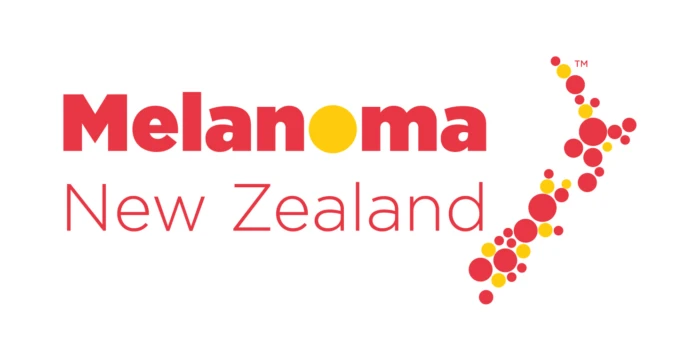Funded projects
The trust has supported a large number of projects over the past years which has resulted in some excellent research outcomes as well as increasing the skills of people who work in the field of cancer-control.
The trust has supported a large number of projects over the past years which has resulted in some excellent research outcomes as well as increasing the skills of people who work in the field of cancer-control.
Targeted treatments for brain tumours: Associating specific drug transporter expression in patient tumours with their respective drug carrier molecules to deliver anticancer therapeutics.
Each year, over 1200 New Zealanders are diagnosed with primary brain tumours, and 1 in 4 cancer patients develop secondary tumour metastases to the brain. Both forms often have poor prognoses, primarily due to the limited permeability of the blood-brain barrier (BBB) to effective anticancer agents. To address this, we developed a BBB-crossing drug carrier system that leverages organic anion transporting polypeptides (OATPs), which are upregulated in the tumour vasculature and cells, to deliver anticancer agents to glioblastoma tumours - the most common primary malignant brain tumour. This project aims to investigate other common brain tumours, including brain metastases, by 1) determining the OATP subtypes expressed in these brain tumours and 2) optimising the drug carrier design for each OATP expressed in each tumour type. We anticipate that this project will broaden the potential of our drug carrier to deliver efficacious therapeutics to a greater number of brain tumour patients.
Epigenetic marker of early colorectal cancer onset
Cancer is a multi-factorial disease commonly associated with ageing. Alarmingly, the incidence of early-onset cancer (adults aged <50 years) is rapidly increasing globally. Specifically, early-onset colorectal cancer (EOCRC) is referred to as an emerging global epidemic and is particularly prevalent in New Zealand. Factors that drive EOCRC, their molecular make up and markers of risk assessment currently remain unknown. We aim to generate DNA methylation and expression profiles of EOCRC to identify age-dependent and age-independent epigenetic drivers to enable risk prediction, assessment and new prevention strategies in young people who have an elevated risk of EOCRC.
Novel protein isoforms in gastric cancer
All cells can create different versions of proteins by changing the start or end point or removing some of the genetic code that tells the cell how to make that protein. Cells can use these different versions of the same protein to do different things. In cancers, these alternate versions of proteins can contribute to cancer growth and spread. We have previously found that higher amounts of a particular protein can improve survival in some people with stomach cancer but be associated with poorer survival in others. We have been investigating this protein using stomach cancer cells in the laboratory and found evidence of more than one version of it. This project will look for different start and end points, and changes in the genetic code that instructs cells to make this protein. We will look in stomach cancer cell lines and cell lines made from cells that support the growth of cancers, and fibroblasts. Identifying different versions of this protein may explain how having more of the protein can be good in some cancers and bad in others and may discover new targets for designing treatments for cancers.
Single-cell RNA Sequencing of CAR T Cells to Enhance Therapy Design
Blood cancers of B-lymphocytes such as lymphomas, myelomas and leukaemias are the sixth most common type of malignancy in New Zealand. Chimeric antigen receptor (CAR) T-cell therapies are standard of care treatments for these cancers in certain parts of the world, however they are not yet available in New Zealand.
Research at the Malaghan Institute led to the completion of ENABLE, an equity-focused phase 1 trial of a new third-generation CAR T-cell therapy. This therapy showed similar efficacy and improved safety compared to current leading international therapies, and a phase 2 trial is now underway. However much like existing treatments, there is still room for improvement in terms of efficacy. One known reason is 'exhaustion' of CAR T-cells, due to over-stimulation caused by prolonged contact with cancer cells.
Using cutting edge single-cell RNA sequencing technologies, this study aims to identify novel target genes in the CAR T-cell therapy produced by the Malaghan Institute, and to modify these genes to combat CAR T-cell exhaustion and enhance efficacy. This research is also expected to support the development of CAR T-cell therapies for new indications, such as solid tumours, where exhaustion is a major barrier to success, thus directly benefiting New Zealanders with cancer.
This research project is funded by Suncorp NZ thanks to the generous donations raised through Spirit to Cure.

Investigating resistance mechanisms to MAPK signalling inhibitors in melanoma
Melanoma is a type of skin cancer. Of all the countries in the world, New Zealand has the highest rate of death due to melanoma. While treatments like immunotherapies and targeted therapies have shown clinical success, many patients fail to respond to these treatments because the cancer cells become resistant to the drugs. This highlights the urgent need for new treatment strategies to overcome drug resistance. In this research, I aim to use new gene-editing technologies to identify genes associated with drug resistance in melanoma. This can help us discover new drug targets and improve treatment options for melanoma patients.
This year the prestigious John Gavin Fellowship is co-funded with our charity partner Melanoma Foundation New Zealand.

Cancer Trials NZ Data System re-development
Cancer Trials NZ (CTNZ) is a national academic cancer research organisation that facilitates opportunities for patients and cancer care specialists to access cancer clinical trial expertise across Aotearoa New Zealand (AoNZ). A key support we provide is our data system (ALEA), but this has a substantial annual licensing fee which is no longer sustainable. This application is for a contribution to the cost of transitioning to a system with no annual fees (REDCap) which is widely used. The funds will allow the transition process to ensure the system meets best practice standards (international and Māori data sovereignty) for cancer clinical trials.
Accelerated pancreatic cancer biobanking with focus on Māori participation and leadership
Much of today’s cancer research relies on biobanking – the collection with consent and ethical approval of tissue and clinical information for future research. This project will break down biobanking barriers for Māori and accelerate biobanking of a cancer type of particular concern for both Māori and non-Māori – pancreatic cancer. It will investigate expanded biobanking practices, including enhanced guardianship (kaitiakitanga) to enable collection of whakapapa information and up-to-date clinical information. By returning research results to participants’ biobank records, it has the potential for reciprocation to participants of any actionable findings to guide their clinical care.
Travel to attend the Clinical Oncology Society of Australia (COSA) Annual Scientific Meeting (ASM)
Funding to attend the Mammalian DNA Repair Gordon Research Conference from 2 - 7 February, 2025, USA.
Funding to attend the Tandem Stem Cell Transplant and Cellular Therapy Meetings in Hawaii in February 2025.
Attendance to the International Psycho-Oncology Society World Congress
Conference fees, accommodation, per diem to attend the 8th Public Health Palliative Care Conference, Bern, Switzerland
Attendance to ENIGMA and CIMBA meetings in Riga, Latvia
Attendance of the 16th International Society for Tryptophan Research Conference 2024 in Jena, Germany
Investigating Genetic Drivers of Breast Cancer Risk and Response to Therapies
Inherited factors contribute significantly to the incidence of cancer. We have identified that a genetic variant known as the APOBEC3A/B fusion deletion is much more common in Māori than in European or Asian populations. This variant is linked to increased risk of breast and other cancers. Deletion carriers also tend to develop cancers that have high numbers of mutations that respond to immune therapies but not to standard therapies. By studying this variant amongst Māori, its association with breast cancer risk, and its impact on tumour mutations, we hope to better understand its role in cancer development. Additionally, we will explore how this variant interacts with another gene, CDH1, which is linked to gastric and lobular breast cancers and menopausal hormone therapy. This will help identify whether individuals carrying this variant are at greater risk of developing breast cancer, and whether those who do develop cancer are more likely to benefit from immunotherapy.
This research project is funded by our charity partner Breast Cancer Cure
